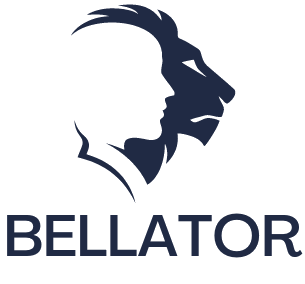Losing a home through foreclosure is a stressful experience. California’s new foreclosure laws aim to provide homeowners with enhanced protections and introduce challenges in areas like surplus funds recovery. This article explores the effects of these laws, recent legislative updates, and how to navigate surplus fund recovery effectively.
What Are Surplus Funds?
Surplus funds are left over after a foreclosed property is sold for more than the outstanding mortgage balance and associated costs. For example, if a foreclosure auction sells a property for $500,000 but the mortgage debt is $400,000, the remaining $100,000 constitutes surplus funds. Under California law, these funds belong to the homeowner, not the lender.
Recovering these funds can be difficult due to legal and administrative hurdles, making expert assistance essential.
New California Foreclosure Laws
The recent updates to California foreclosure laws focus on protecting homeowners and ensuring transparency. However, they also introduce complexities in the recovery of surplus funds. Notable changes include:
Prohibition on Early Contact
A new law prohibits anyone from contacting a homeowner to claim surplus funds within the first 90 days after the trustee’s deed is recorded. This gives homeowners time to understand their rights and seek legitimate help.
Minimum Bid Standards
Trustees can no longer sell properties for less than 67% of the fair market value at foreclosure sales. This ensures that properties are not undervalued, potentially increasing surplus funds.
Notification Requirements
Mortgage servicers are now required to notify borrowers that a third party can file a request to receive copies of notices of default and sale. This adds another layer of transparency to the process.
Deadlines for Claiming Surplus Funds
Homeowners typically have up to three years from the date of a foreclosure sale to claim surplus funds. After this period, unclaimed funds are transferred to the state.
Recent Legislative Updates
- Assembly Bill 2424 (AB 2424): This law mandates that lenders provide homeowners with clear, detailed notices about foreclosure alternatives, such as loan modifications or forbearance, ensuring they have ample opportunity to act.
- Senate Bill 1079 (SB 1079): Grants tenants and eligible community organizations the right to match the winning auction bid within 45 days, keeping properties within the community.
Surplus Fund Recovery Process
The process of recovering surplus funds involves the following steps:
- Identify Entitlement: Verify your eligibility for surplus funds. This usually applies to the foreclosed property’s former owner.
- File a Claim: Submit a claim to the trustee handling the foreclosure. Proper documentation, such as proof of ownership and identification, is required.
- Legal Verification: The trustee reviews claims to confirm entitlement and check for competing claims, such as junior lienholders.
- Receive Payment: The surplus funds are disbursed to the rightful owner once approved.
Errors in documentation or missing deadlines can jeopardize your claim. Moreover, the rise in fraudulent claims necessitates engaging a reliable partner for assistance.
Safeguarding Against Fraud
Fraud is a significant risk in surplus fund recovery. Homeowners should take precautions to avoid scams:
- Verify Credentials: Confirm the legitimacy of anyone claiming to help recover surplus funds.
- Avoid Upfront Fees: Reputable firms, like Bellator Consulting LLC, do not charge hefty fees before beginning work.
- Consult Experts: Rely on trusted professionals to navigate the legal and administrative complexities.
How Bellator Consulting LLC Can Help
Bellator Consulting LLC specializes in surplus fund recovery, making the process seamless and stress-free for homeowners. Here’s what sets them apart:
- Expertise: In-depth knowledge of California’s foreclosure laws.
- Personalized Service: Tailored solutions for each client’s unique circumstances.
- Transparency: Frequent updates and clear communication to keep clients informed.
Homeowners’ Rights Under New Laws
California’s new foreclosure laws emphasize homeowners’ rights and provide critical safeguards:
- Extended Notification Periods: Giving homeowners time to explore alternatives.
- Bid Matching Rights: Empowering tenants and nonprofits to purchase foreclosed properties post-auction.
- Right to Redemption: Allowing homeowners in judicial foreclosures to reclaim their property by settling debts after the sale.
Taking Proactive Steps to Avoid Foreclosure
Homeowners can take several measures to avoid foreclosure, including:
- Requesting Loan Modifications: Work with lenders to make payments manageable.
- Considering Forbearance: Pause or reduce mortgage payments temporarily.
- Exploring Short Sales: With lender approval, sell the property for less than the mortgage balance.
- Seeking Counseling Services: Free resources are available to guide homeowners through the process.
Why Timely Action Matters
Deadlines for claiming surplus funds can vary but are typically three years. Acting promptly ensures homeowners can access these funds before they are forfeited to the state.
Reach Out for Assistance
Bellator Consulting LLC and other professionals, such as foreclosure attorneys, can guide homeowners through the surplus fund recovery process while ensuring compliance with California’s new laws. Their expertise can protect your rights and maximize your financial recovery.
Call Bellator Consulting LLC today to book a free consultation and learn how they can assist you in reclaiming what is rightfully yours.


Leave a Reply